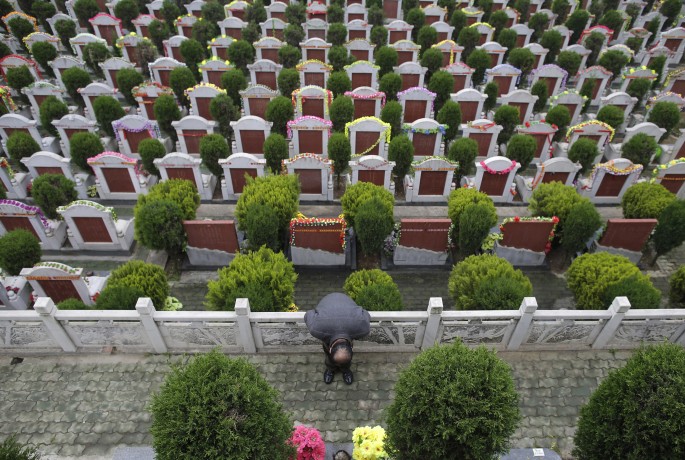As China marks the Qingming Festival, also known as Tomb Sweeping Day, the issue of eco-friendly burials has inevitably made its way to the center of public discussion.
For some years now, officials have promoted eco-friendly burial options (such as cremation and sea burial) over the traditional form of burial in a coffin, in order to save land. According to an official report released recently, the burial land available in cemeteries in China will be exhausted in about six years.
The rapidly reducing burial land in cemeteries across the country has inevitably inflated the cost of a burial plot. Reports indicate that in some cities, the cost of a plot in the cemetery is about 100,000 yuan ($16,000).
Experts say that at the current rate of about eight million deaths yearly, the government would be forced to dedicate more land to cemeteries. Besides the issue of land, traditional burial with a coffin is also thought to be putting an undue burden on other environmental resources.
Local authorities have sought to promote eco-friendly burial options by offering subsidies to relatives who opt to bury their deceased in this way. Despite this, in cities like Beijing, Shanghai, Guangdong and Tianjin where the subsidies are being offered, the percentage of people who have adopted eco-friendly burial options is fractional.
According to Xinhua, just 3.5 percent of the burials in the city of Beijing in 2014 were done using eco-friendly methods. But according to the Ministry of Civil Affairs (MCA), about 45.6 percent of the people who died in China in 2014 were cremated.
A survey by chinanews.com also showed a positive trend. While up to 72 percent of the respondents expressed discontent about the rising cost of burial in cemeteries, about 65 percent noted that they prefer eco-friendly burial options.
Experts say that the main impediments to the adoption of eco-friendly burial options in the country are traditional beliefs, which demand that people treat their deceased with respect and bury them intact next to their ancestors. Therefore, a sort of cultural evolution is required for eco-friendly burials to become acceptable in China.



























